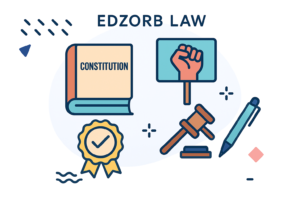For aspiring judges, mastering key contract law cases is essential for excelling in judicial exams and building a strong legal foundation. In this second installment of our series, “Top 5 Contract Law Cases for Judiciary Aspirants,” we highlight landmark judgments that shape Indian contract law and are crucial for exam preparation.
Let’s dive into the must-know cases that will sharpen your legal acumen!
1. Lalman Shukla Vs Gauri Dutt (1913)

📌 Principle: Acceptance must be with knowledge of the offer.
🔹 Facts: A servant, unaware of a reward announcement, found his master’s missing nephew. Later, he claimed the reward.
🔹 Verdict: The Allahabad High Court held that an offer must be accepted with knowledge of its existence.
🔹 Relevant Law: Section 2(b) of the Indian Contract Act (Definition of Acceptance).
2. Khadar Khan Vs Khaja Khan (1898)
📌 Principle: Oral contracts are binding if proven.
🔹 Facts: A dispute arose over an oral agreement regarding goods, with one party denying payment.
🔹 Verdict: The court ruled that contracts need not be in writing to be enforceable unless required by law.
🔹 Relevant Law: Section 10 (What agreements are contracts).
3. CIT v. Kanhaiyalal and Co. (1956)
📌 Principle: Fraudulent misrepresentation makes a contract voidable.
🔹 Facts: A contract induced by fraud led to a legal dispute over its enforceability.
🔹 Verdict: The Supreme Court ruled that an aggrieved party can avoid a contract based on fraudulent misrepresentation.
🔹 Relevant Law: Section 19 (Voidability of agreements without free consent) & Section 17 (Fraud).
4. Satyabrata Ghose Vs Mugneeram Bangur & Co. (1954)

📌 Principle: The doctrine of frustration applies when unforeseen events make contract performance impossible.
🔹 Facts: A land sale agreement was challenged when the land was requisitioned by the government.
🔹 Verdict: The Supreme Court held that requisitioning did not frustrate the contract, defining the scope of the doctrine of frustration.
🔹 Relevant Law: Section 56 (Doctrine of Frustration).
5. Chinnaya Vs Ramayya (1882)
📌 Principle: Consideration can move from a third party.
🔹 Facts: A woman gifted land to her daughter with a condition to pay an annuity to her uncle, who later sued for enforcement.
🔹 Verdict: The court upheld the promise, marking a deviation from the strict English doctrine of privity of consideration.
🔹 Relevant Law: Section 2(d) (Definition of Consideration).
Why These Cases Matter
Understanding these landmark judgments will give you an edge in judicial exams and enhance your analytical skills in contract law. These aren’t just cases, they define the very principles that govern enforceable agreements in India.
Stay ahead in your judiciary preparation with Edzorb Law, where complex legal concepts become easy to grasp! 🚀📚

 Podcast
Podcast








 Features
Features






